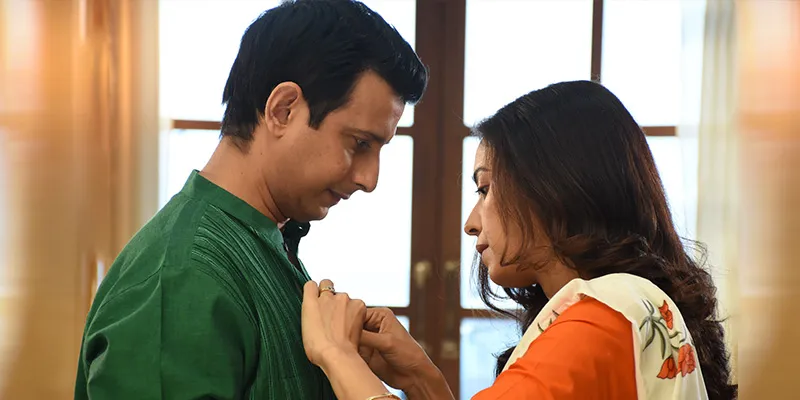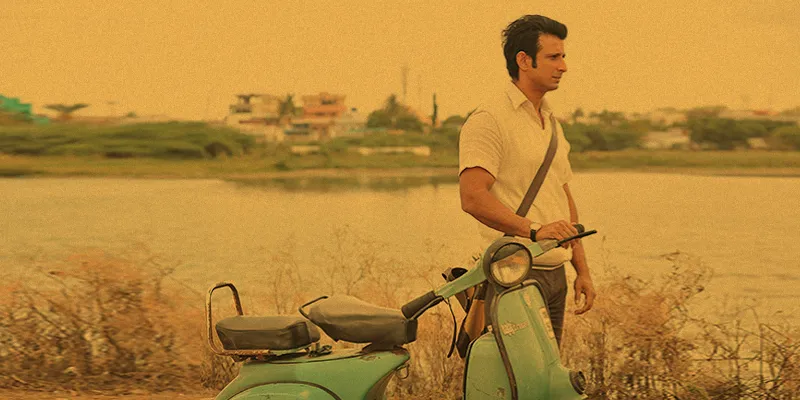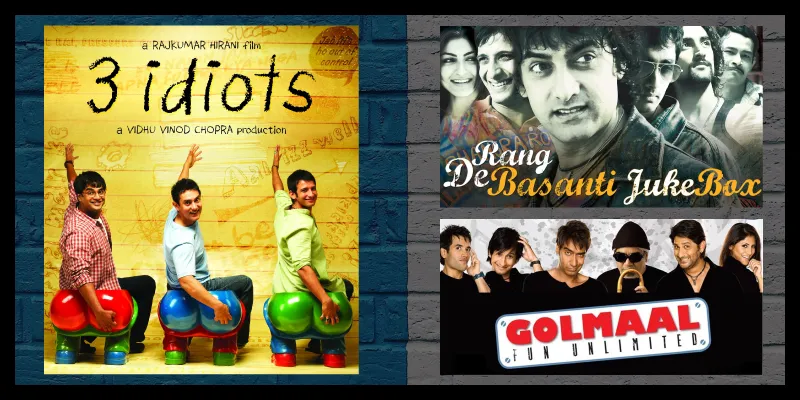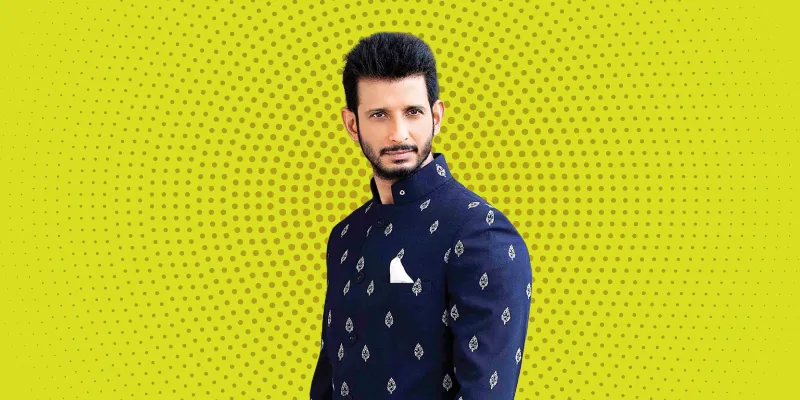No shame in taking a U-turn: 3 Idiots actor Sharman Joshi gets candid about the web and 20 years in Bollywood
You have seen him as Sukhi in Rang De Basanti, loved him as Raju Rastogi in 3 Idiots, and laughed your lungs out with Laxman in Golmaal. Now meet the real guy behind all these characters, Bollywood actor Sharman Joshi
Unsurprisingly, over the last couple of years, Indian entertainment has experienced a vast shift in balance. Blame it on the emergence of digital platforms or the leaning towards content-driven narratives, the move has been definitive. One that has been warmly embraced by both audience and the producers of content alike.

Sharman Joshi
More and more mainstream artistes are now looking at homegrown over-the-top (OTT) platforms to experiment with new and diverse roles.
With ALTBalaji’s latest Baarish, actor Sharman Joshi has officially come into the digital fold. Ask him why this move at this stage in his career, and the actor, who has spent nearly two decades facing the lens and treating us with blockbusters like the Golmaal series, Rang De Basanti, and 3 Idiots, without any hesitation says, “I was a late bloomer”.

Essentially a romance drama, Baarish is set between two contrasting worlds, of a rich diamond merchant (played by Sharman) and a working professional (Asha Negi). As the two find their lives intertwined, love blooms despite all differences and drama.
On the heels of Sharman’s digital debut, YSWeekender has a candid chat with the actor on why the 3 Idiots star is not so frequent on the big screen, his advice on failure and taking a U-turn, and that much-talked-about role in Aamir Khan’s Lal Singh Chaddha.
Also read: Nandita Das ko gussa kyun aata hai?
Edited excerpts from the interview:
YS Weekender: After two decades as an actor, have you become picky when it comes to roles?
Sharman Joshi: Jab jab jo jo hona hai, tab tab so so hoga. Jo kaam aata hai, usko mai imaandari shidaat se karta hu, jo kaam nahi aata hai uske baare me mai sochta nahi hu.
(Whenever things have to happen, they will. Whatever work comes to me, I do it with dedication and honesty. What I don’t get, I don’t really think about it.)
YSW: With Baarish you will be getting into the digital space, why take the step at this stage in your career?

SJ: When the Netflixes and Amazons of the world came in, my family told me about it and eventually I ended up watching them. I started off with House of Cards, Narcos, and Game of Thrones and I was absolutely stunned with the kind of shows that were being streamed online. And then all these players were in India, producing Indian content.
I saw Breathe and Sacred Games and I thought they had wonderful production value, great content and I was absolutely looking forward to being part of such shows. But by the time things got moving, there was plenty of dark drama.
“When I was watching shows from the Indian context… agar aapko family ke saath baithkar dekhna ho, there was no other show.” (There was no Indian show that I could sit and watch with family.)
I got this offer, for Baarish, which is a simple love story of a couple who believes in love, who believes in a long-standing relationship, and for whom the family relationship is of vital importance.
YSW: What role does “baarish” play in the show; is it like a third character?
SJ: For me, baarish (rain) is synonymous with romance and love and passion and warmth. Both Nandita Mehra (director) and Ekta Kapoor felt that Baarish would be an appropriate title. It’s primarily a romantic show, which also happens to be a family drama. Throughout most of the meetings, we have the rain as a backdrop, which also adds to the romance that the couple is sharing.
YSW: Since you have experienced mainstream Bollywood, tell us how web is different from movies? Which one do you prefer?
SJ: With Baarish, the main difference has been content. It is a love story, which happens during your day-to-day life. Like any ordinary working couple would experience love, that’s how it is depicted in the show. Because of the luxury of time – it’s a web show and we have had so many episodes – we have invested into their relationship, seen how it grows, and essentially the conversations are that much lighter.

A still from Baarish

As opposed to theatre, drama, or films where you are going to tell a story in two hours, you mostly have to stick to the main thrust or the fulcrum of the story all the time. All the conversations have to be quite limited and to the core of the story. But in Baarish, considering it’s a web show, it allows us the luxury of time to have these day-to-day conversations.
“Chai bani hai ki nahi, ha bani hai lekin thori thandi ho gayi hai. Acha ek kaam karo, ek aur bana sakte ho kya? (Has the tea been made yet? It’s made but it’s gone cold. Okay, do one thing, can you make one more cup?)
These conversations that we have every day, those are the lines that I got to speak. And that’s quite a change, quite a delight for me as an actor, because it is also extremely challenging to keep it real and normal.
Also read: I'm involved in issues that hurt us the most: Prakash Belawadi
YSW: OTT platforms also have opened the doors to low-budget projects. How do you think this will impact the Indian content in the coming years?
SJ: We don’t have to look too far behind, fortunately for us, we have a reference point by virtue of the US which has always been one step ahead when it comes to technology, and these platforms. The films still co-exist… films and web shows will co-exist, irrespective of the scale that a good film offers. A good film will be a good film, and people will go out and watch it, because a film is an outing for a family.
It’s not either this or that, it’s all going to be everything together. It’s great that people are going to have multiple choices.
YSW: While we are still on the topic of movies, let’s talk about, The Least of These: The Graham Staines Story. What made you choose this role?

A scene from the film, The Least of These
SJ: It was a very compelling story to begin with and that attracted me. As we all know, it was a tragic, real life story, but at the same time a story that is very important in today’s time. Especially when acts of extremism, from any group, is happening so rampantly.

So, this movie is very relevant in our times, although I hope it quickly loses its relevance in the coming future. It just talks about how extremism of any kind is something we should all stand up together and say no to.
YSW: Sukhi from Rang De Basanti was a big hit among movie-goers. Will we see more of such roles from you? Are you being picky when it comes to Bollywood roles?

Sharman has played many interesting roles in Bollywood movies
SJ: I am in no rush. I want to pick and choose work that I desire and like to do, that I am excited by and which motivate me. And that kind of work takes time and I am willing to give it the time it needs.
My next release is this year, on August 15, a movie called Mission Mangal. And then I am starting on a new film called Fauji Calling, which is about the challenges and the emotional trauma that families of soldiers who give their lives for the country go through.
YSW: In Bollywood, have you ever felt typecast? What do you wish changed in our Hindi film industry?

Sharman finds joy in simple, real life moments
SJ: I always felt that there’s a lack of creative producers, people who would back the content and then cast according to what the content demanded. And no other consideration taken into account. But it’s now happening with the new lot of producers, who are creative and take pride and honour in the content they are producing, and they cast all the actors and the technicians accordingly.
YSW: There’s a new breed of actors and directors right now, who would you love to work with next?

SJ: More than actor and director, like I said, full marks should be given to the creative producers, because they believe in what they are offering, and they know that it is out-of-the-box and yet back it financially. There have been many directors and actors wanting to do breakthrough work for the longest time, but to find finance, and people who believe in their ideas… there were not many.
YSW: What’s the worst part of being famous?
SJ: The worst part of being famous is that your public life “is out there”. A businessman can easily camouflage how well or not he is doing at any given point in time, an actor is out there and the past failure of a film is there for everyone to know, which more than the actor impacts his family as well.
YSW: What’s Sharman Joshi like off-camera when he is with family?
SJ: I find joy in simple, real moments - a moment at the dinner table, a moment during a holiday, that’s what makes a life well-led.
YSW: Any advice for the aspiring actors out there?

SJ: As long as you are passionate, you truly believe in the work that you set out to do, and go do it… sometimes you may go out with that belief and you might discover along the way that maybe I am not cut out for this.
There is no shame in taking a U-turn and redefining yourself and finding your true self in the mirror. Patience is the virtue that one needs to have in abundance.
Aim for the sky and always be satisfied with whatever you have achieved because that’s what the Almighty has decided and it’s meant to be that way.
YSW: What are your plans for the future? What about the buzz about the Aamir Khan starrer?
SJ: I haven’t been offered that film yet officially but I do hope that it comes my way. And I would be more than willing to do it.
Also read: If not an actor, I would have my own startup, says IITian-turned-actor Amol Parashar







